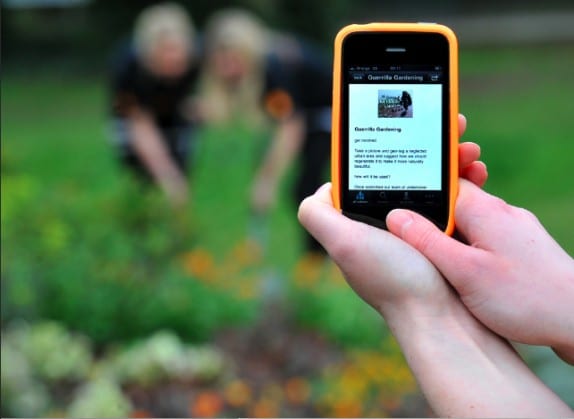
Microvolunteering: Effective or Not?
In our last post on microvolunteering, we presented some aspects of it and a few easy ways to get involved. Since then, we’ve noticed a lot of buzz about surrounding this trend, so we thought we’d offer you some critiques and responses.
But first a quick refresher:
Microvolunteering is used to describe the notion of volunteers (both online and off) completing bite-sized tasks for non-profit organizations, foundations, and causes. Websites like Sparked, Brightworks, Spots of Time, and the Do Some Good smartphone app. act as a bridge between these microvolunteers those wanting help.
As this new trend takes off, a lot of questions are being asked and a few potential issues have sprung up. As critics pose their questions and concerns, microvolunteerism proponents have passionately responded.
Here’s both sides of the conversation:
Critique 1: Microvolunteering reinforces the belief of some that they simply don’t have the time to volunteer.
Rob Jackson, a consulting Ltd, says, “… if we don’t tackle the root causes of people’s lack of engagement with volunteering – for example, the reasons for their perceptions of time poverty in regard to volunteering – then we can develop all the whizzy tech tools we want but we won’t ultimately solve the problem.”
Response 1: Actually, microvolunteering is battling the no time for volunteering belief.
Ben Rigby, one of the founders of Sparked, says, “I think this is exactly the problem that microvolunteering solves…microvolunteering will help you discover that you can give back at almost any moment throughout your day. You may think you’re too busy, but there’s a lot you can do in the same time that you’re spending on Facebook or watching YouTube videos.”
Critique 2: Microvolunteering doesn’t lead to macrovolunteering.
Response 2: Whether or not micro leads to macro is not the point.
Sometimes those involved in larger scale volunteer projects will find the ease and mobility of micro volunteering as an additional and innovative way to help. Sometimes those who (believe) they only have tiny slots of time to microvolunteer may consider more large-scale projects.
“Micro will absolutely lead to macro. It also won’t. And macro will lead to micro. But any way you slice it, micro shouldn’t be critiqued as a function of how many macrovolunteers it converts.”- Ben Rigby
Critique 3: Microvolunteering is simply slacktivism spiced up.
Response 3: Microvolunteering is not the same as simply clicking “like” or “donate.” It’s real and affective volunteering.
“Creating a logo for a nonprofit, translating a document, or brainstorming fundraising ideas is not slacktivism. It’s honest to goodness volunteering.” – Ben Rigby
An On-Going Conversation
Conversation surrounding microvolunteering is bound to continue. Some are sold on it, others more skeptical. Despite all the buzz though, these little ways of giving and helping are making a big noise in the volunteer world. Today on Sparked, there were over 3,000 challenges awaiting the masses of microvolunteers. Along with those challenges come countless thank-you’s, “success stories” displayed from hundreds of those who’ve have been helped.
BASE Camp Children’s Cancer Foundation wrote to their volunteers, “Thank you for the time you donated, I can not tell you how much you have helped our organization and hope you will continue to do so on future challenges.”
For more critiques and responses, click here.










